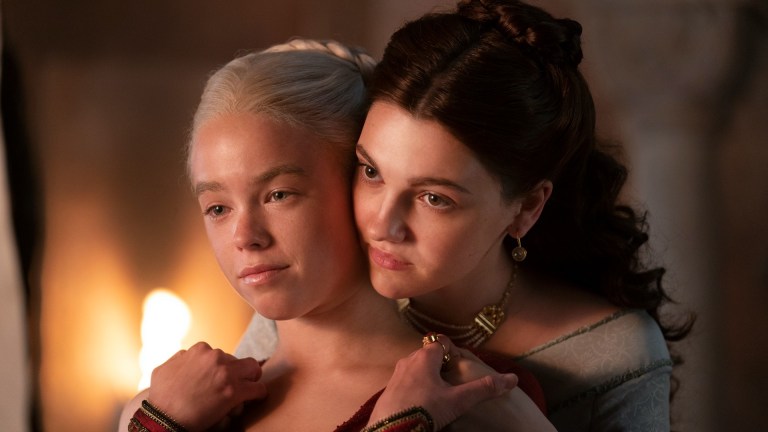How Will HBO Max and Discovery+ Merge?
Warner Bros. Discovery has confirmed the merger of its two major streamers. But how will the newly-formed conglomerate balance reality with prestige?

Ever since the merger of Warner Bros. and Discovery was finalized in April 2022, there’s been speculation as to if and how the companies’ respective streaming services, HBO Max and Discovery+ would coexist. Between the unceremonious cancelation of the upcoming HBO Max original movie Batgirl and the quiet removal of at least six HBO Max exclusive movies this week, people have been rightly skeptical of the direction Warner Bros. Discovery CEO David Zaslav is taking the company. While the Warner Bros. Discovery Q2 earnings call on Aug. 4 may not have answered all of our looming questions regarding the future of HBO Max and its extensive library of beloved movies and TV shows, we now have a somewhat better idea of what the company’s plans are.
For starters, HBO Max and Discovery+ will officially become one streaming service that is scheduled to launch in the U.S. in summer 2023. The company didn’t yet announce what this new service will be called or how much it will cost subscribers, but JB Perrete, CEO and President of Global Streaming and Interactive for Warner Bros. Discovery (WBD), did say that they are exploring ad-free and ad-supported options as well as a version that would be totally free but also ad-supported. But that still leaves the question of what will be on this new service when it launches next year?
During the call, Warner Bros. Discovery execs emphasized the brands, franchises, and series that they see value in. Among these are things you might expect like HBO, DC (specifically Batman, Superman, and Wonder Woman), Game of Thrones, Shark Week, and the Mayor of Flavortown’s own Diners, Drive-Ins, and Dives. However, they’ve also decided that 90 Day Fiancé and its several spinoff series are now a “universe”. This isn’t to poke fun at anyone who enjoys these shows, but rather at the increasingly popular and increasingly unnecessary concept of labeling any series or movies that are connected as their own universe.
For franchises like Marvel and DC, who frequently explore the concept of the multiverse in their comic book source material, it totally makes sense. But for a series of reality shows centered around the marriage visa process? It just feels silly and forced. To top it all off, WBD still apparently considers The Wizarding World of Harry Potter to be an important and relevant franchise, despite the transphobic comments J.K. Rowling has made in recent years, and the lack of box office and critical success for the most recent Fantastic Beasts sequel, The Secrets of Dumbledore.
Even though it would seemingly make more sense for them to cut their losses with the Harry Potter franchise and use that time, money, and energy for something different, Zaslav has made it clear in the number of cis-white men that he’s hired into positions of power that diversity isn’t a priority for him. It’s not surprising that he would look past the controversy surrounding Rowling and continue to see the franchise as a potential money-maker. After all, this is the same executive who canceled the release of Batgirl, one of only a few projects on the DCEU slate featuring a Latinx woman in a lead role, and yet refuses to cancel the release of The Flash – a movie that has been in development for years and whose production has continuously been delayed by the problematic and criminal behavior of its star Ezra Miller.
Zaslav also seems to be stuck in a binary and dated way of thinking given that HBO Max and Discovery+ were gendered while the services were compared during the earnings call. HBO Max was labeled as the “male skew” streaming service because of its focus on scripted content, fandoms, and things that make you “lean in” and think while Discovery+ was labeled the “female” streaming service because of its focus on unscripted reality content that makes you “lean back”.
Not only are these descriptions reductive, but they also feel particularly outdated during the information age of 2022. If we’ve learned anything from the box office success of movies like Wonder Woman, Captain Marvel, and Black Panther, and the critical success of series like Our Flag Means Death and Harley Quinn, it’s that people want to see diverse stories on screen.
According to Zaslav they’re focused on “curation, quality, and brand” moving forward, specifically in regards to HBO content, stating that “the HBO brand, the crown jewel, will live on. (No matter what the new service is named)”. Even with the assurance that HBO and its content will be invested in, it’s hard not to still be cautiously concerned for the future of HBO Max. Despite some hiccups, the streaming service has become beloved by many for its deep catalog of classic movies, blockbusters, prestige TV, and quirky series. If bringing Discovery+ into the fold will introduce more people to this treasure trove of quality movies and TV shows while they’re also tuning into their favorite reality shows, then that’s wonderful. The problem lies in whether or not HBO Max will lose what makes it great in the process.
